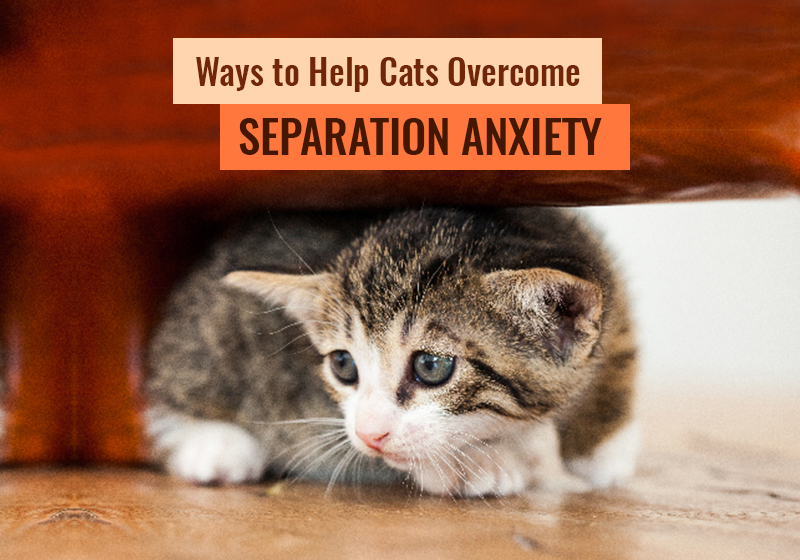
INTRODUCTION:
Cats are lovable, affectionate, and adorable. Across the United States, cats are one of the popular choices as pets. As a matter of fact, nearly 25-30% of US households have felines as their animal companions. These furry companions make a very good family pet and within no time they make you an essential part of their lives.
Once these four-foot furry balls are into you, they seek your love and attention, and when they don’t see you around, or when you leave them home for work, over a period of time, these felines become anxious and start behaving abnormally. Such uncommon stressful behavior of cats is known as separation anxiety.
This blog will educate you on anxious behaviors of cats and ways to help your feline companions get over this abnormal psychological condition.
COMMON SIGNS OF FEAR & ANXIETY:
To better understand Separation anxiety in cats, first we need to learn the common signs of such stressed behavior. During their uncommon mental state, cats exhibit some symptoms such as,
- Restlessness
- Turn away when you approach them
- Rejects eye contact
- Holds their tail close to their body
- Excessive chewing
- Dilated pupils
- Growling and hissing
- Excess urination
WAYS TO HELP CATS OVERCOME ANXIETY
1. Train Them Gradually
Start small. Begin by separating your felines for short periods. Leave them alone in a room for 15-20 minutes when you’re still around and moderately increase their alone time. It’s the simplest and easiest way of making your cat learn and get used to loneliness.
2. Tire Them Out Before You Leave
Prior to leaving your feline alone, make sure your felines get a good amount of physical exercise. You can play fetch with them or make them run. This will ensure you take all the nervousness off your animal and will drain them out. All they will be capable of doing is resting when there’s nobody around.
3. Say No to ‘Olas’ and ‘Sayonaras’
Avoid seeing your cat at least 10-15 before and after leaving and coming back, respectively. It is obvious that your feline will run towards you when you come back. Don’t get carried away and wait for 5-10 minutes before you start patting them. This will help your pet understand that being separated is completely normal.
4. Surround Them with Treats and Toys
Leave your cats with their favorite treats and fun toys to play with. Ensure that you give them enough quantity of treats that lasts till the time you’re back. Toys will keep them busy and entertained, while their favorite snacks will keep their tummies full.
5. Use Medicines Only If Needed
If you notice your cat showcasing overly aggressive symptoms and is difficult to handle, you may need to consult your vet soon before the situation gets out of control. Your vet will help you with appropriate treatment to calm your felines. BestVetCare carries a couple of anxiety relief treatments such as, Anxitane Chewable Tablets, and Feliway Spray which aid in calming your cats when they’re anxious.
CONCLUSION
To conclude, separation anxiety is one of the critical mental ailments your feline may suffer from. However, with appropriate preventive measures, and calculated medicinal treatments in consultation with a veterinarian blended with your love and care, undoubtedly, you can help your felines get rid of this emotional illness.
